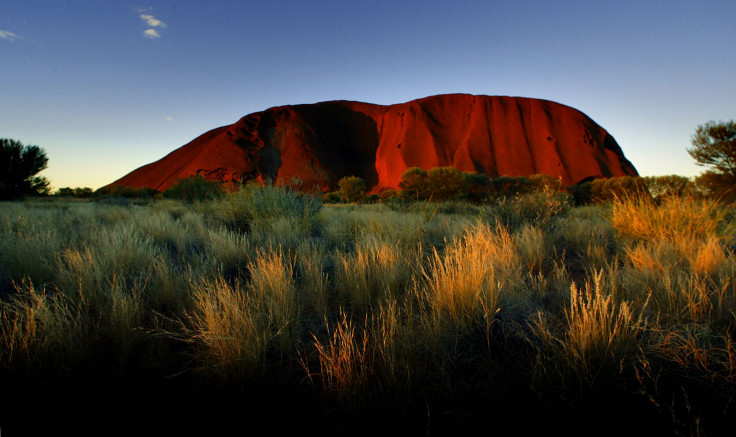Australia To Close Ayers Rock To Climbers?

Along with the Great Barrier Reef and the Sydney Opera House, Uluru -- or Ayers Rock -- is one of Australia’s most recognizable features. Despite its remote location in the Outback some 290 miles (460km) from Alice Springs, it receives 200,000 visitors every year and is revered by the Anangu Aboriginal people as a sacred rock. In fact, it’s revered so much that they’ve consistently asked visitors to refrain from climbing it. After many unsuccessful years, it seems their plea is finally working.
The government installed a chain handhold to make the hour-long ascent up the 1142-foot (348m) beacon easier in 1964, but the government has stopped promoting the climb ever since the Aboriginal people of the area gained joint-ownership of the park in 1985. Signs now ask visitors to remain on the ground below the red-hued landmark because the Anangu fear they will cross a songline or dreamtime track that holds deep spiritual significance.
Though people are free to disregard the notices, just 20 percent of visitors today tackle Uluru on a trip to the region, compared with 74 percent of visitors in 1990. That figure is down dramatically from just two years ago, when 38 percent of visitors opted to make the ascent. As the numbers dwindle, Parks Australia says it’s considering an outright ban, though it says it will consult widely before making any decisions.
The potential ban is not based solely on cultural concerns, as there are environmental and safety considerations as well. At least 36 people have died on the sandstone monolith. Moreover, there are no facilities at the summit and issues with erosion.
A Parks Australia spokeswoman told the Australian that the organization, responsible for managing Australia’s national parks, will “consult both the tourism industry and operators well before any decision is made to close the climb.”
She said she hoped to work with the Anangu to create more ethno-tourism opportunities in the area.
"We also want to ensure we have more alternative experiences -- more indigenous-guided tours, for example -- in place for visitors” before Uluru is closed to climbers.
© Copyright IBTimes 2024. All rights reserved.






















